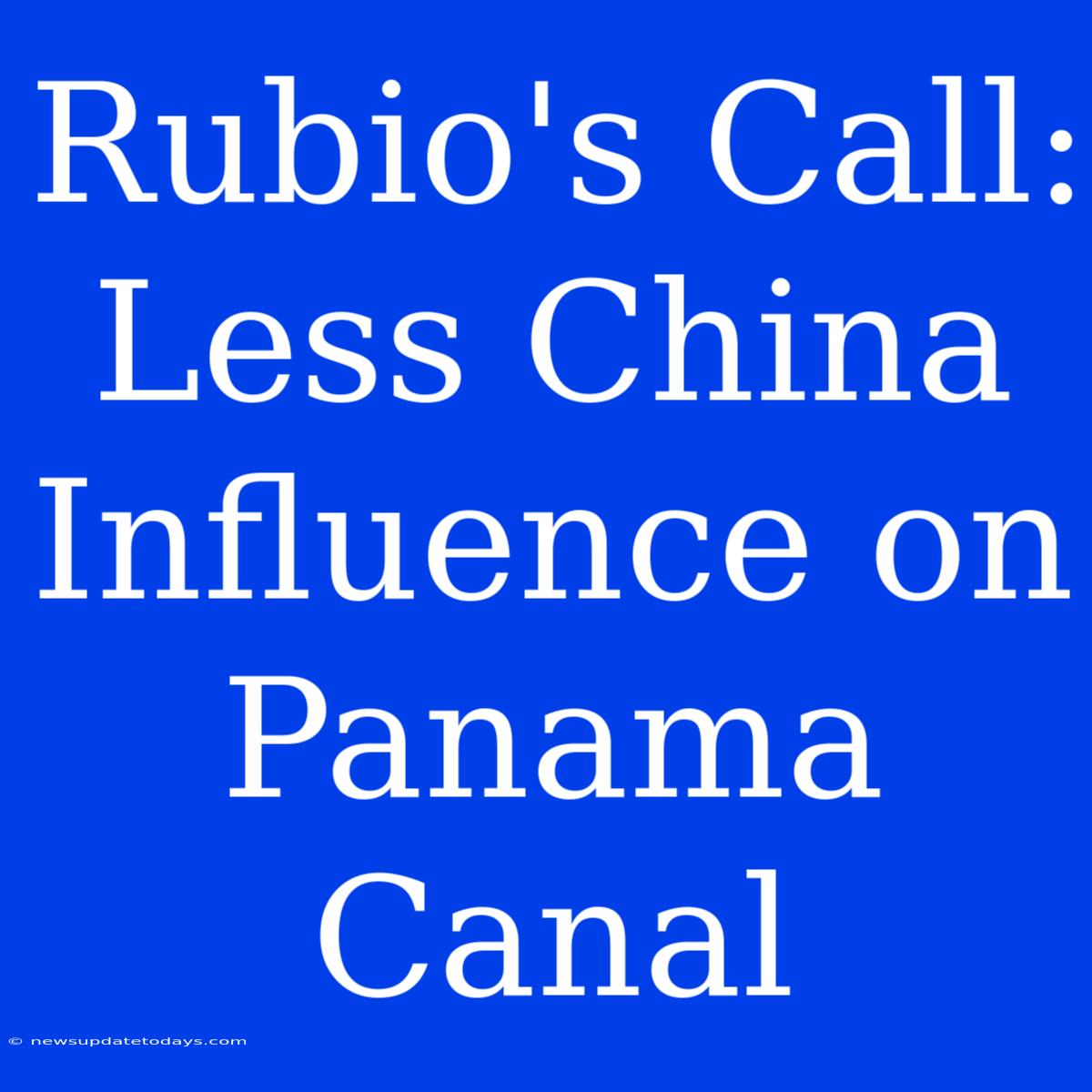Rubio's Call: Curbing China's Influence on the Panama Canal
Marco Rubio's recent statements regarding China's growing influence over the Panama Canal have ignited a debate about national security and global trade. His call for increased scrutiny and potential countermeasures underscores the strategic importance of this vital waterway and the concerns surrounding Beijing's expanding economic and political reach. This article delves into the specifics of Rubio's concerns and analyzes the broader implications for the United States and the global community.
The Concerns: More Than Just Economics
Senator Rubio's concerns aren't simply about economics; they touch upon critical national security issues. He highlights the potential for China to leverage its growing involvement in the canal's operations and surrounding infrastructure for strategic advantage. This could include:
-
Data Access and Surveillance: Concerns exist about potential access to sensitive shipping data, potentially impacting US military movements and trade secrets. China's involvement could open doors to enhanced surveillance capabilities.
-
Debt Trap Diplomacy: The possibility of Panama falling into a "debt trap" through Chinese financing for canal-related projects is a significant worry. This could lead to undue influence and compromise Panama's sovereignty.
-
Geopolitical Leverage: Control, or even significant influence, over the Panama Canal offers considerable geopolitical leverage. This could disrupt global trade and provide China with a tool for exerting pressure on the US and its allies.
Rubio's Proposed Solutions and Potential Countermeasures
While Senator Rubio hasn't laid out a specific, detailed plan, his statements suggest several potential countermeasures the US could consider:
-
Increased Investment and Engagement: Boosting US investment in Panamanian infrastructure and economic development could counterbalance Chinese influence. This approach emphasizes partnership over coercion.
-
Strengthening Alliances: Collaborating more closely with Panama and other regional allies can create a stronger, unified front against undue Chinese influence. This involves diplomatic efforts and security cooperation.
-
Financial Incentives: Providing financial incentives to Panama to encourage transparency and reduce reliance on Chinese loans could help mitigate the debt-trap risk.
-
Enhanced Security Measures: Implementing robust security measures to protect the canal's infrastructure and data from potential cyber threats or other forms of sabotage is crucial.
The Broader Implications: Global Trade and Geopolitics
The Panama Canal's strategic importance extends beyond its economic role. It is a critical artery for global trade, influencing shipping routes and impacting the global supply chain. Any disruption or compromise of the canal's operations would have significant repercussions for the world economy. China's growing presence raises questions about global trade stability and the potential for future disruptions. The implications for US national security are equally profound. Maintaining a secure and reliable canal is paramount to US interests.
Conclusion: A Balancing Act
Senator Rubio's call for less Chinese influence on the Panama Canal highlights a growing tension in global geopolitics. The challenge lies in finding a balance between fostering economic cooperation and safeguarding national security interests. A proactive, multi-faceted approach that combines diplomacy, strategic investment, and robust security measures will be crucial in navigating this complex issue. The debate surrounding the Panama Canal underscores the critical need for the US to engage strategically and proactively in the region to ensure the canal's continued operation in a secure and stable manner.

